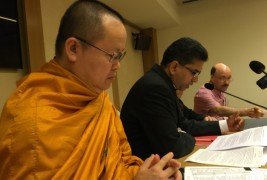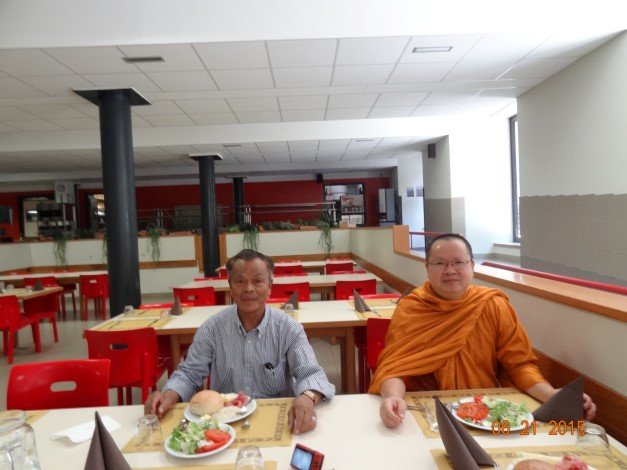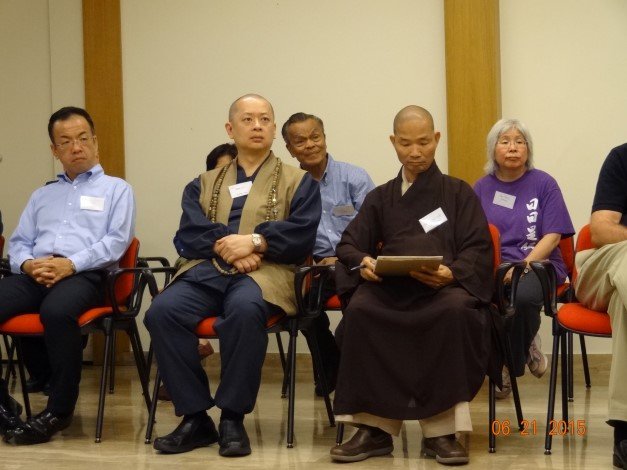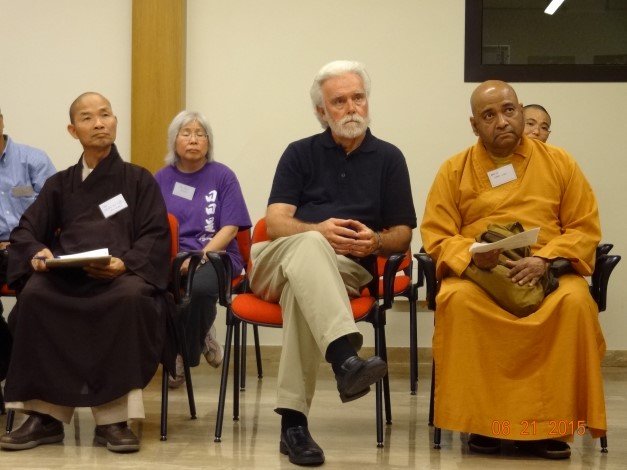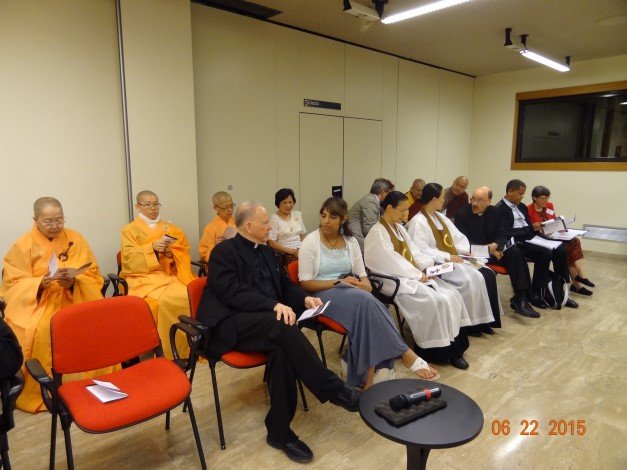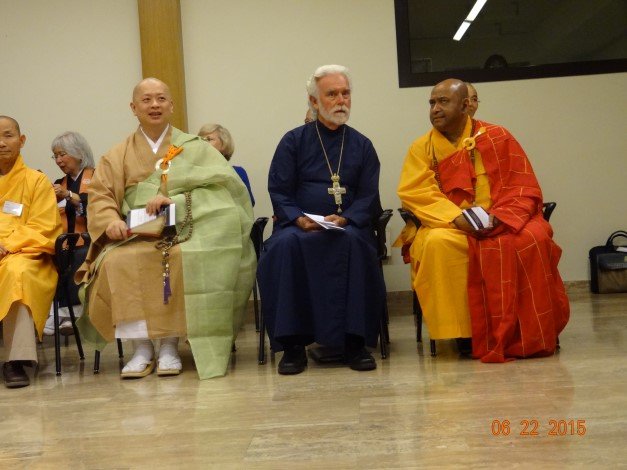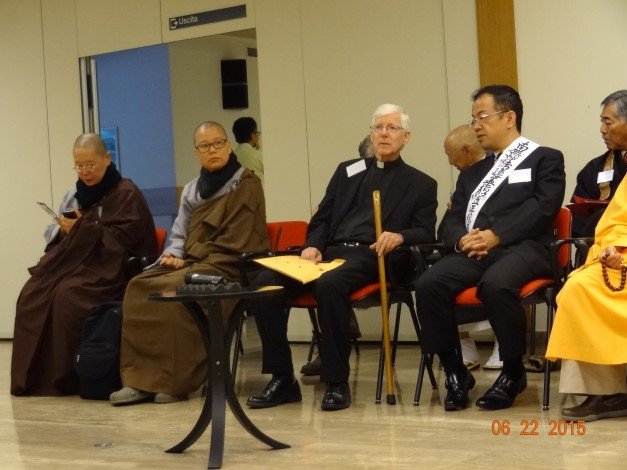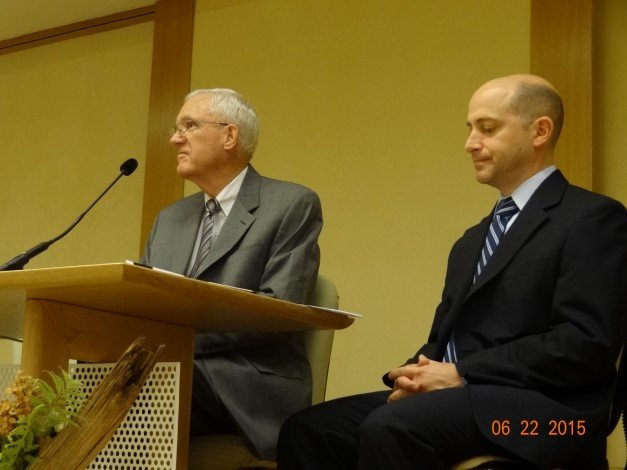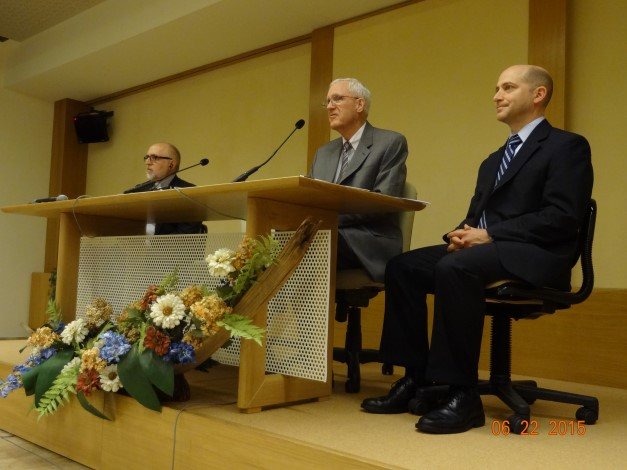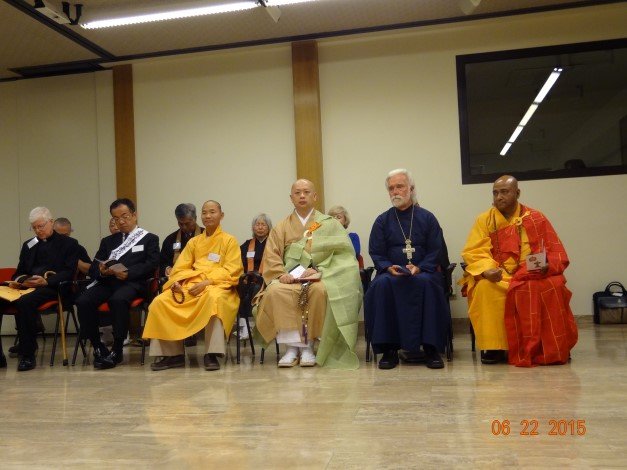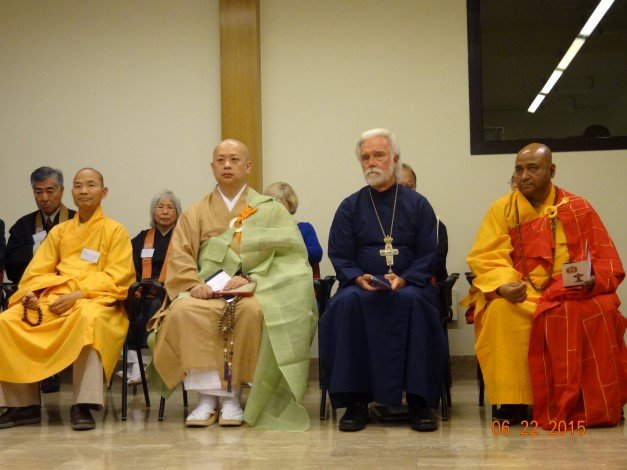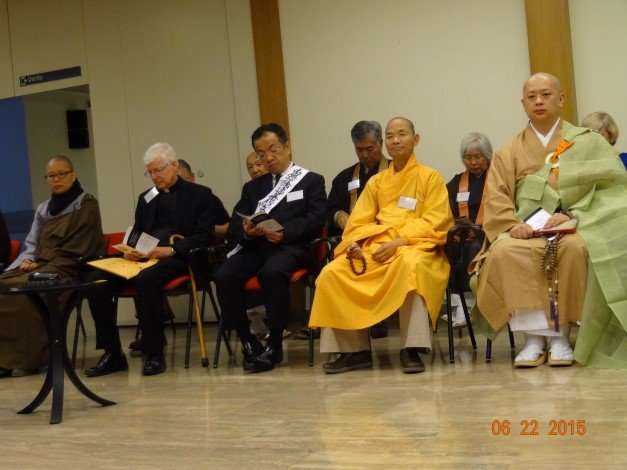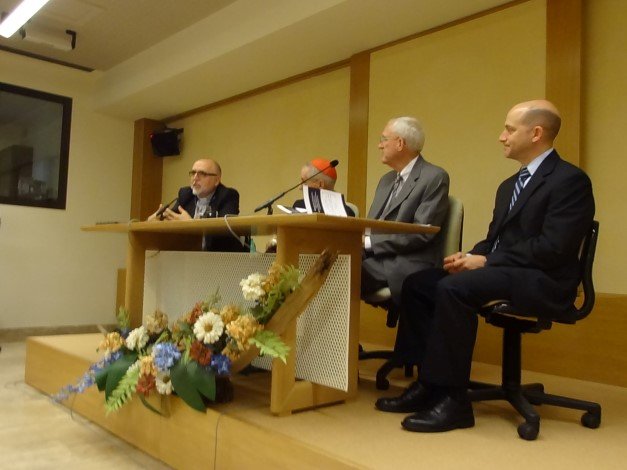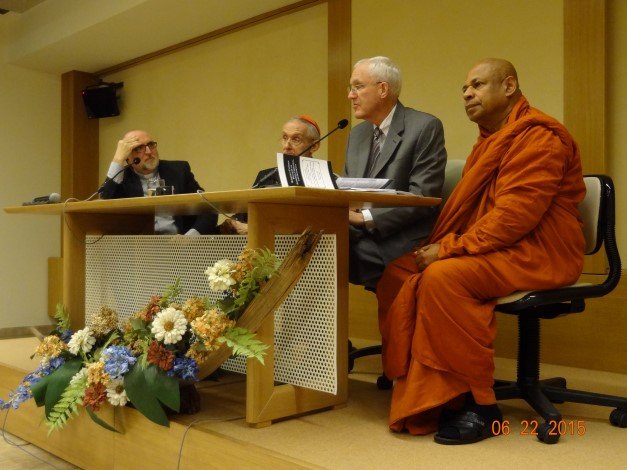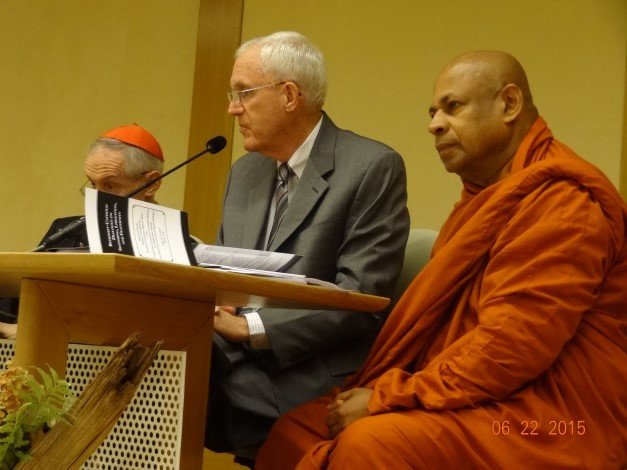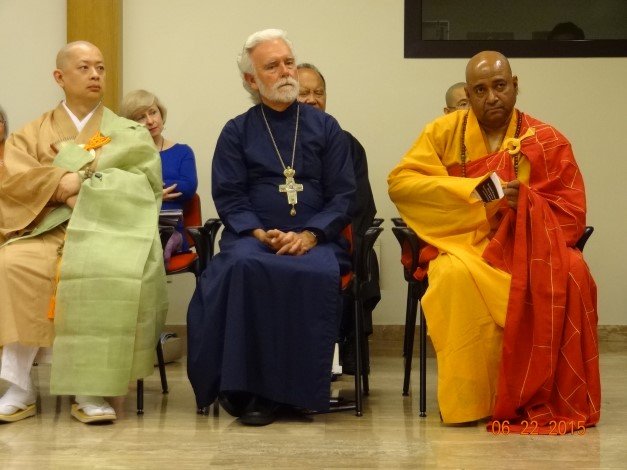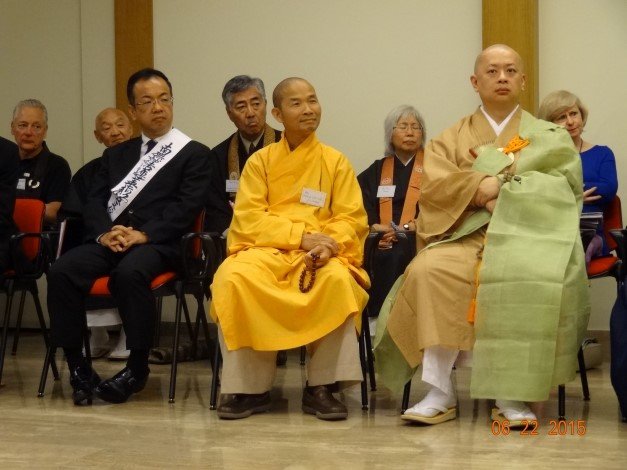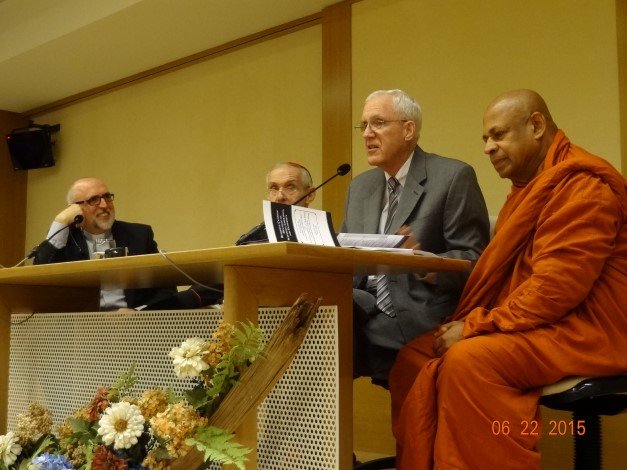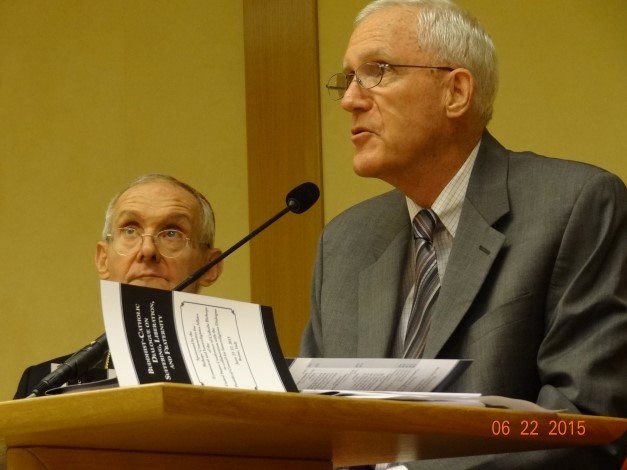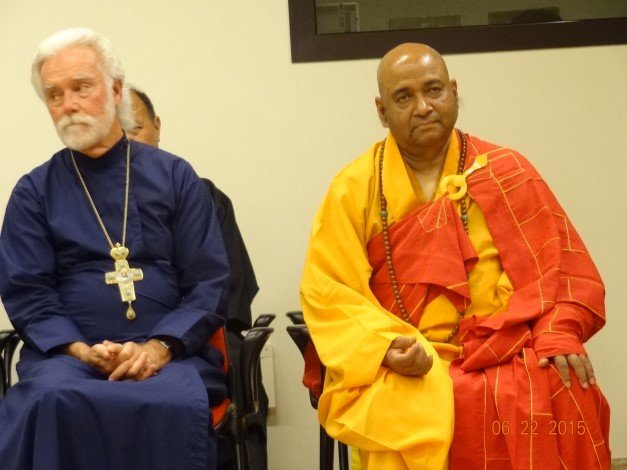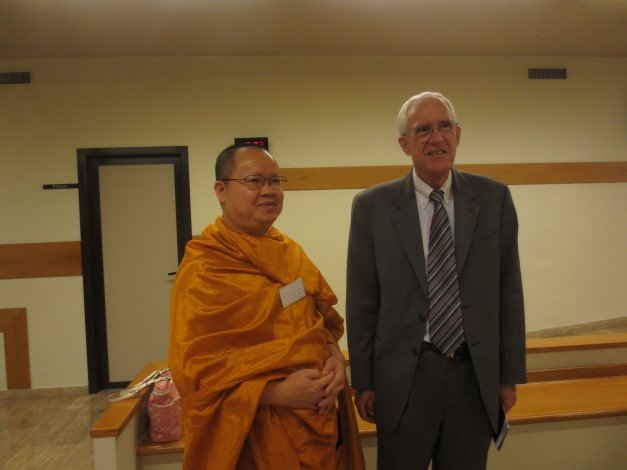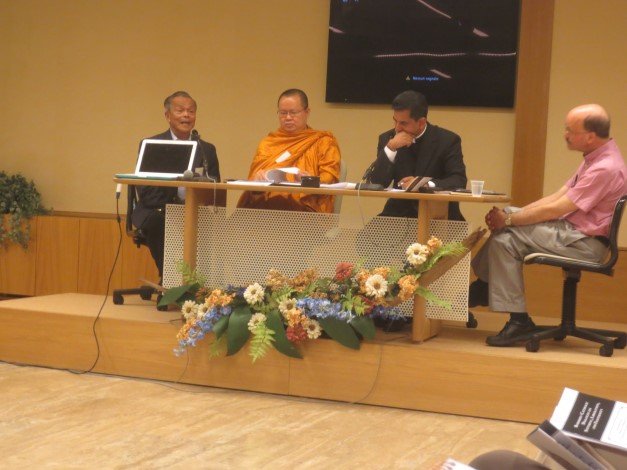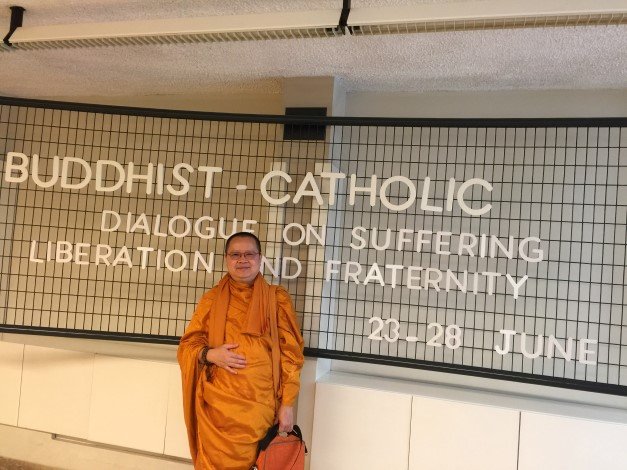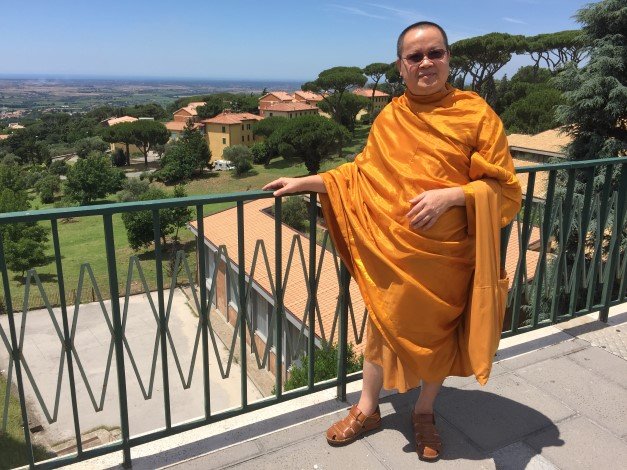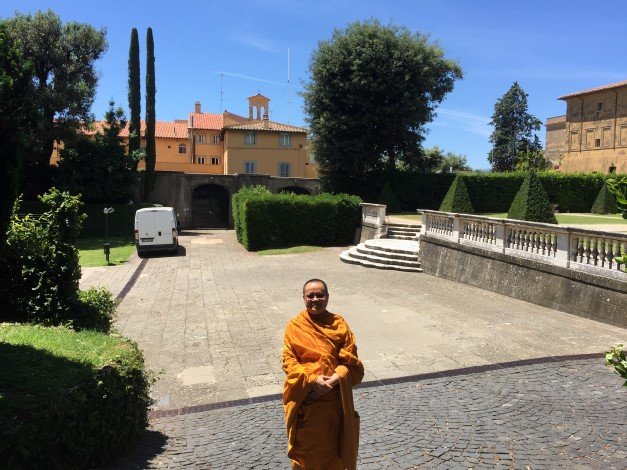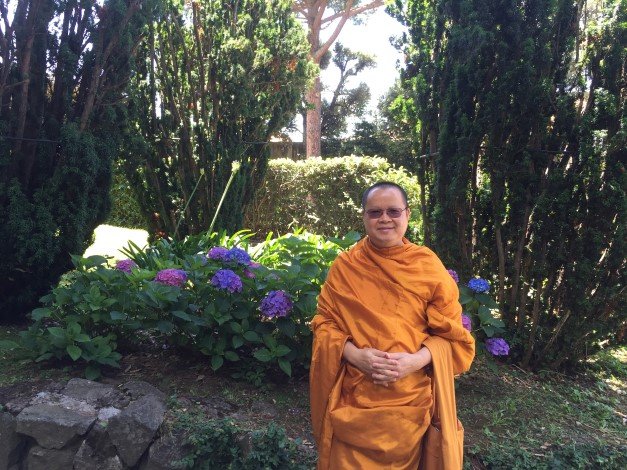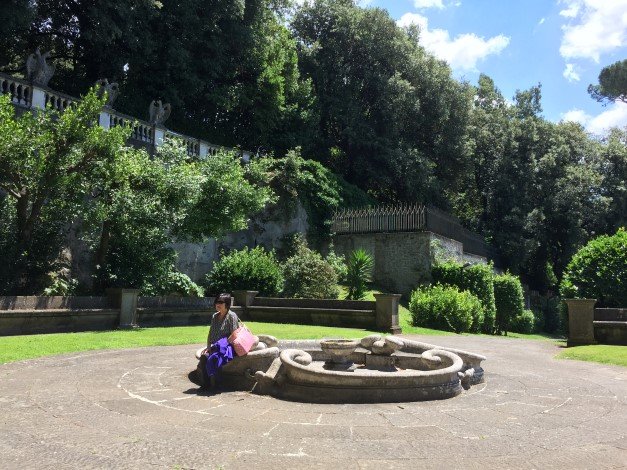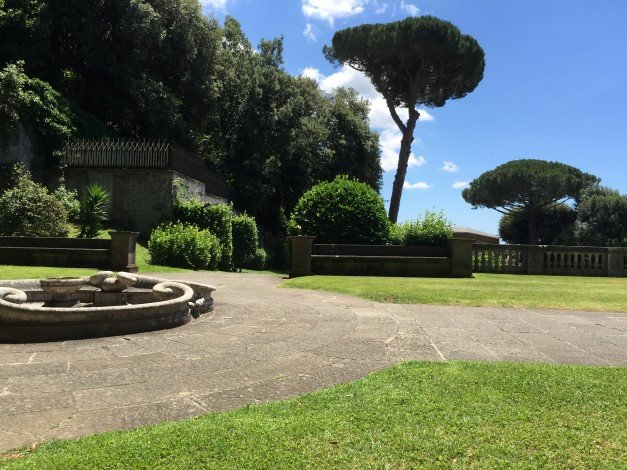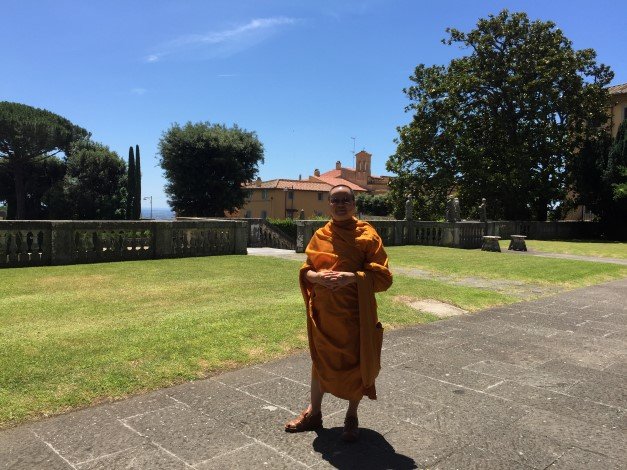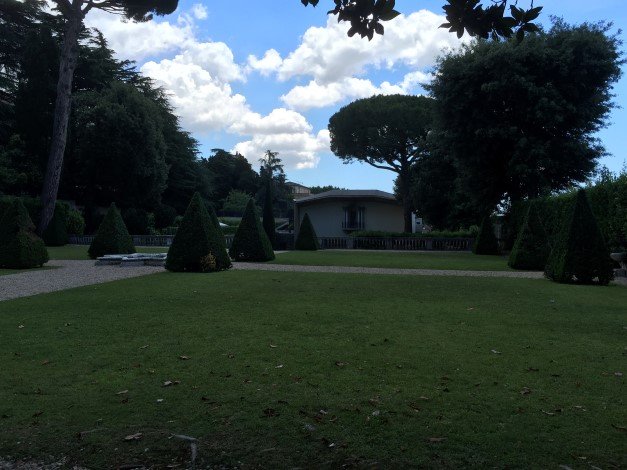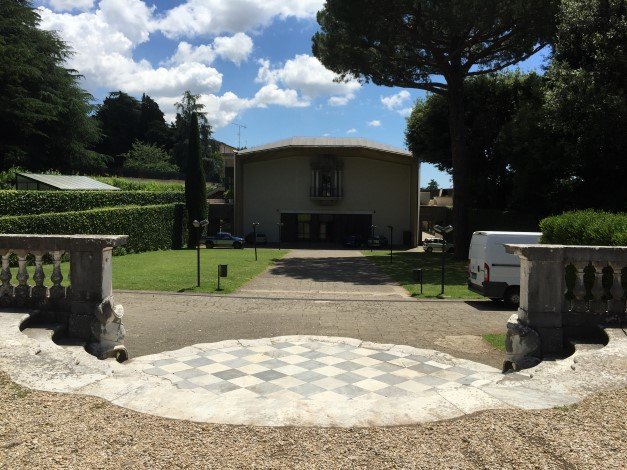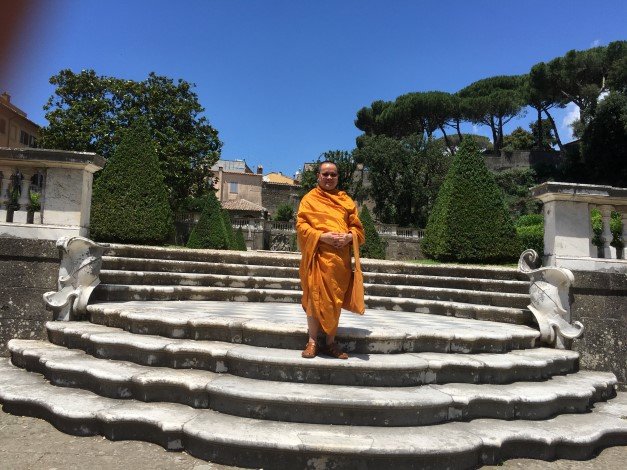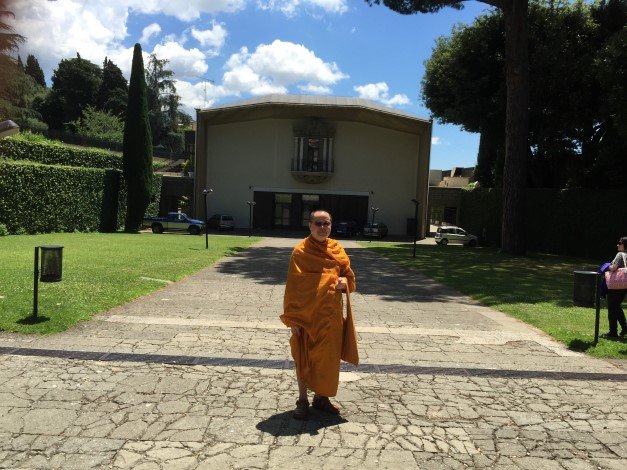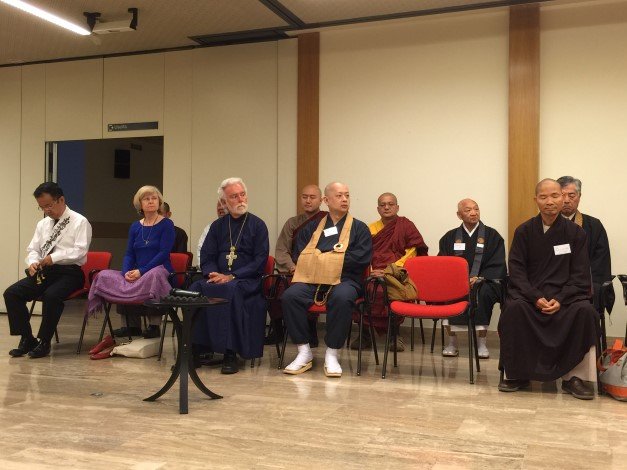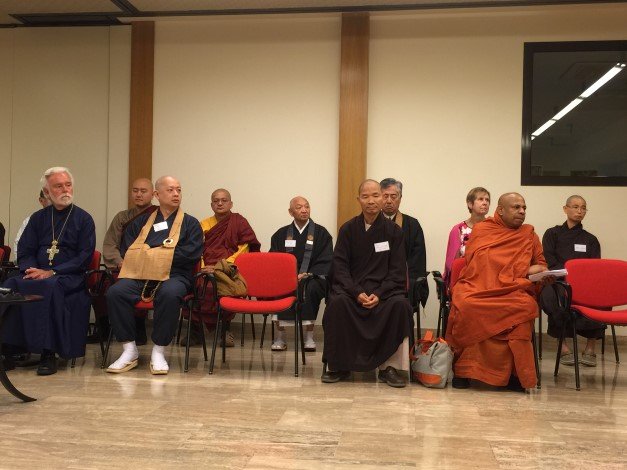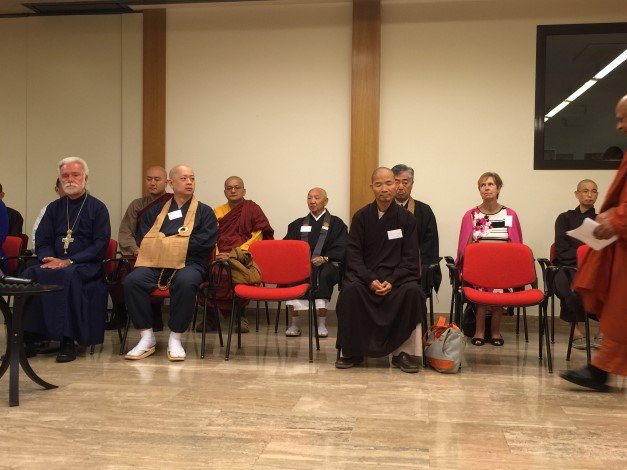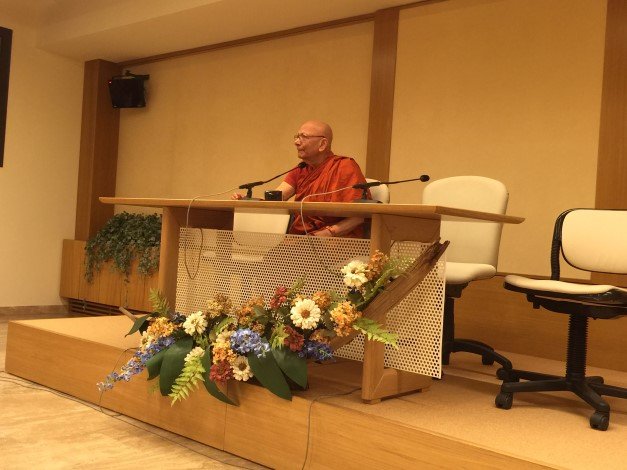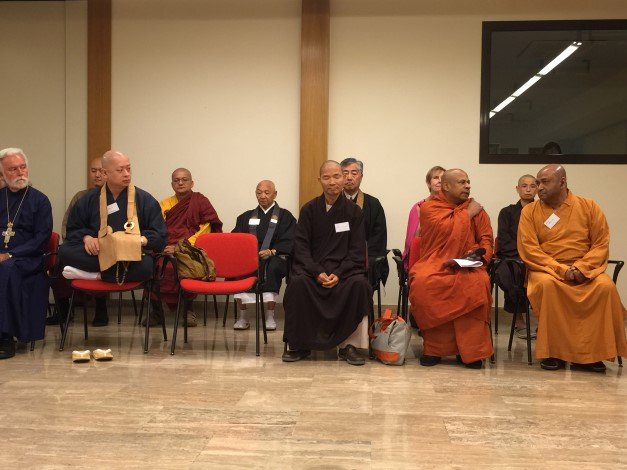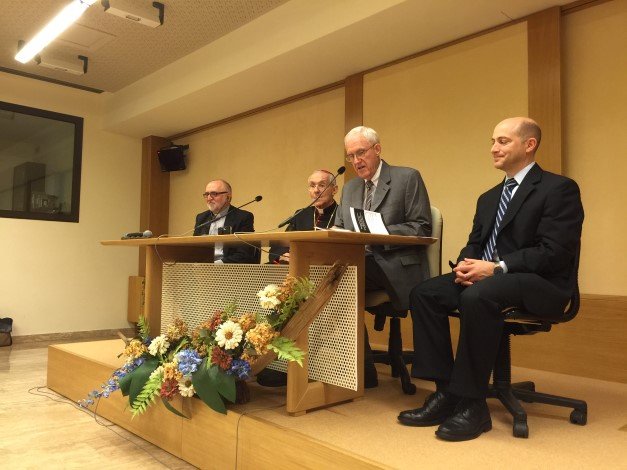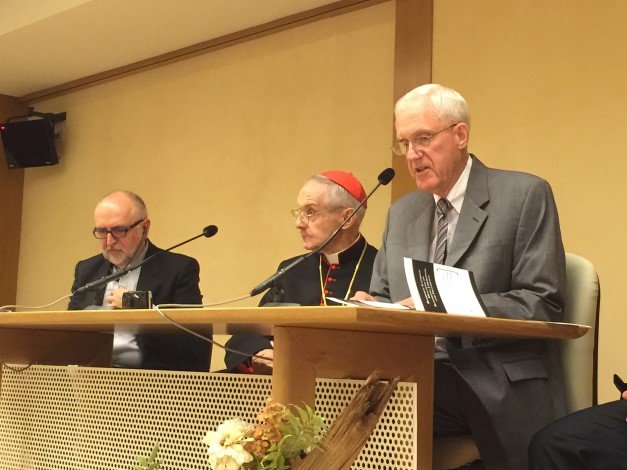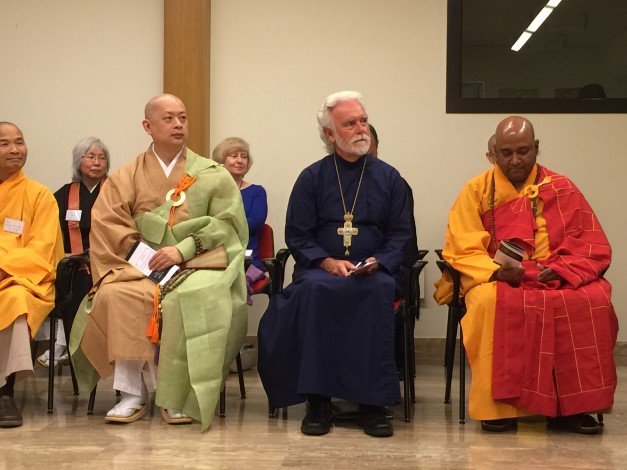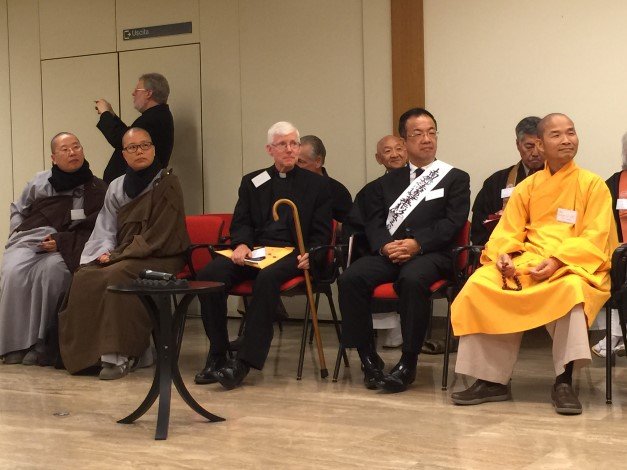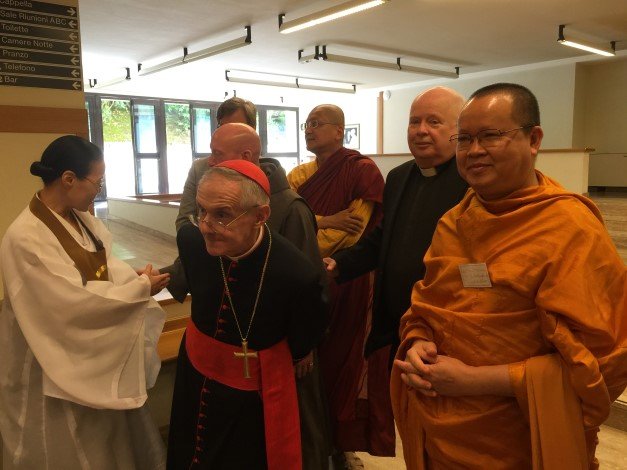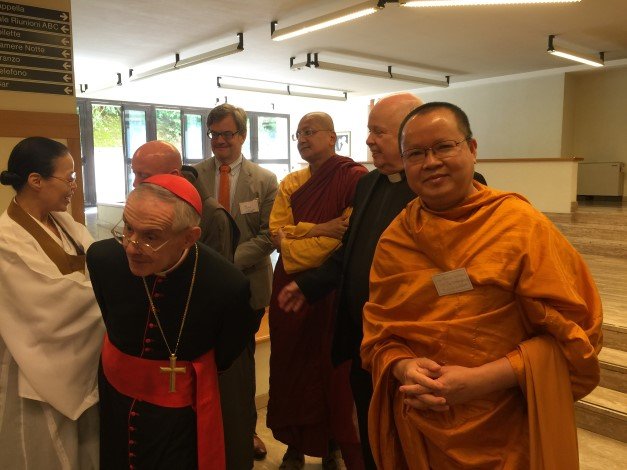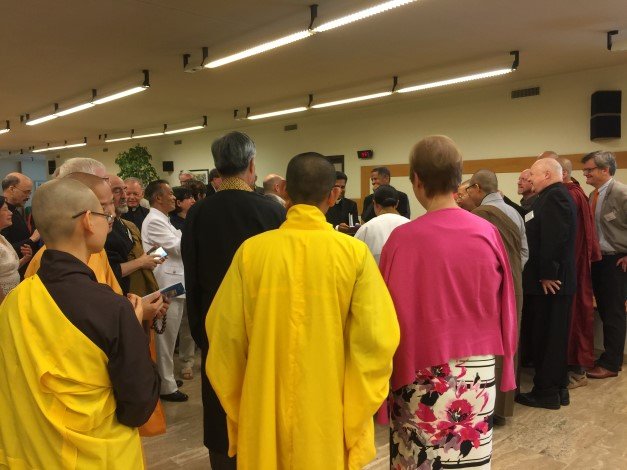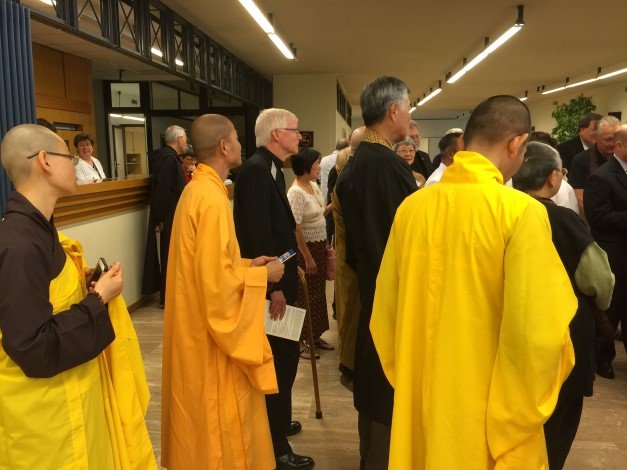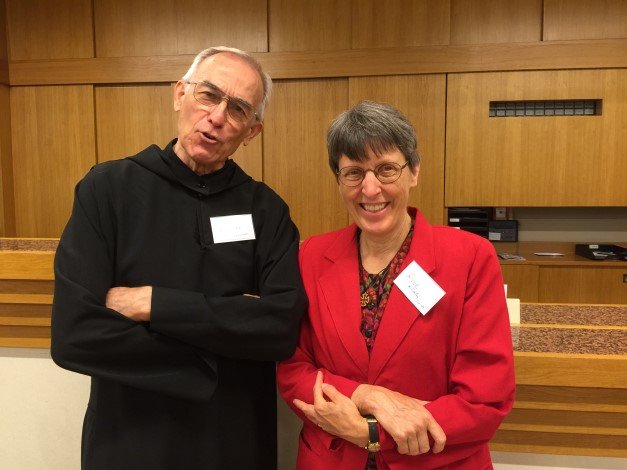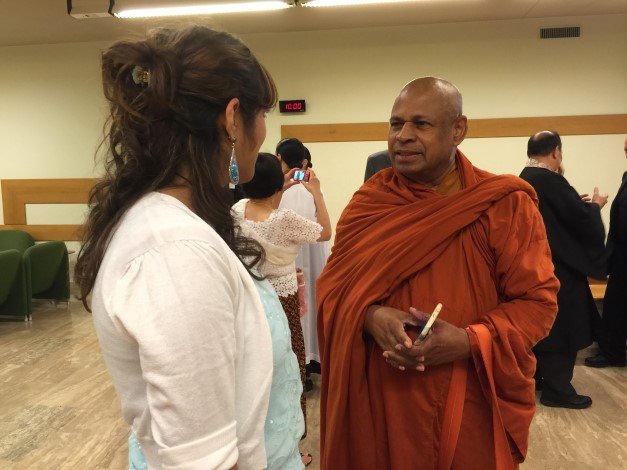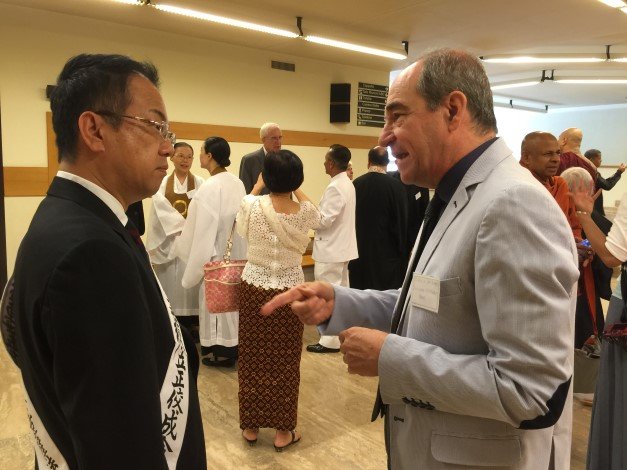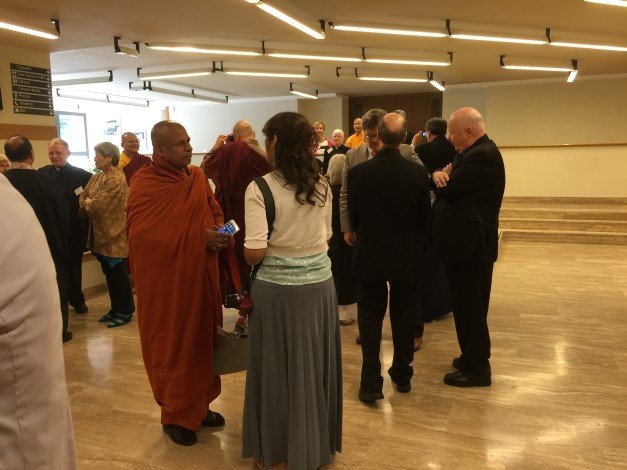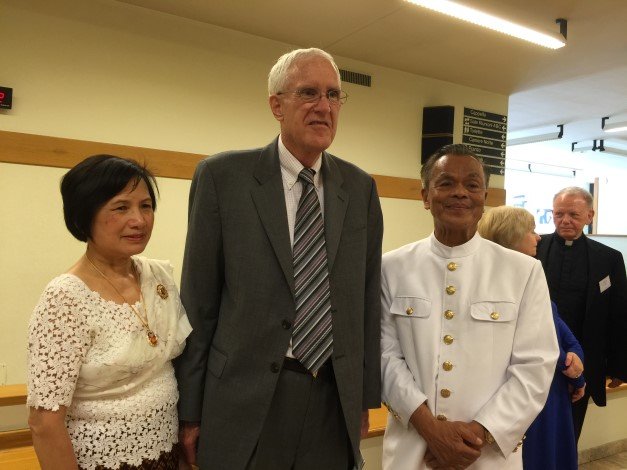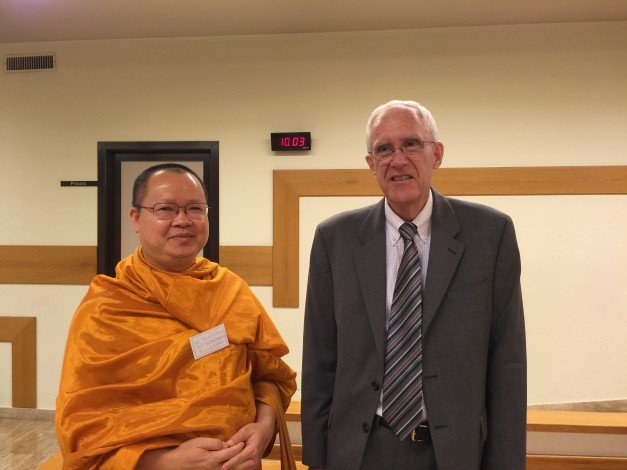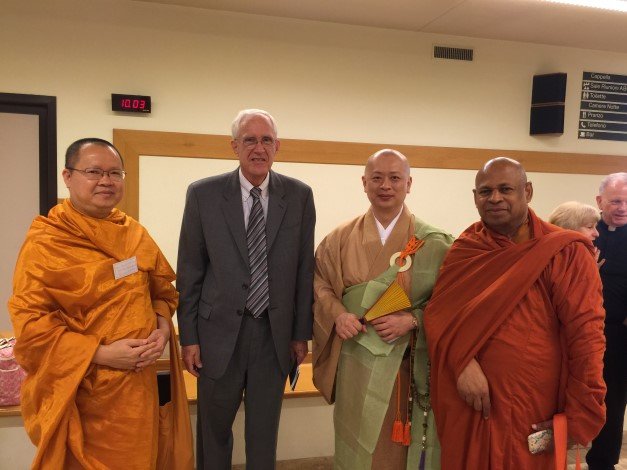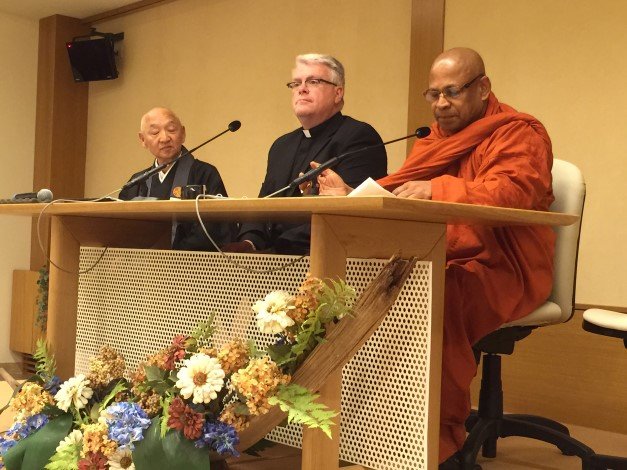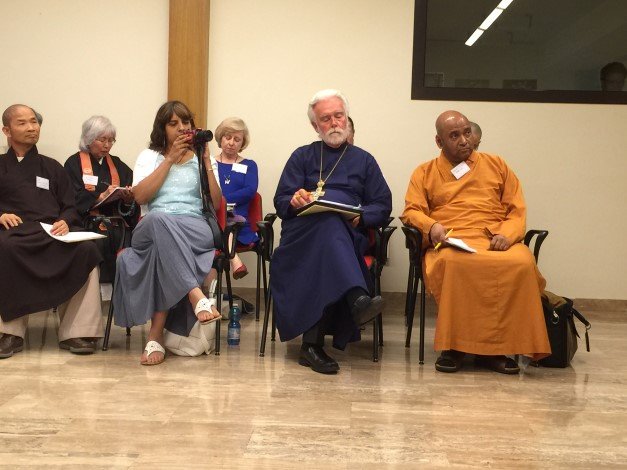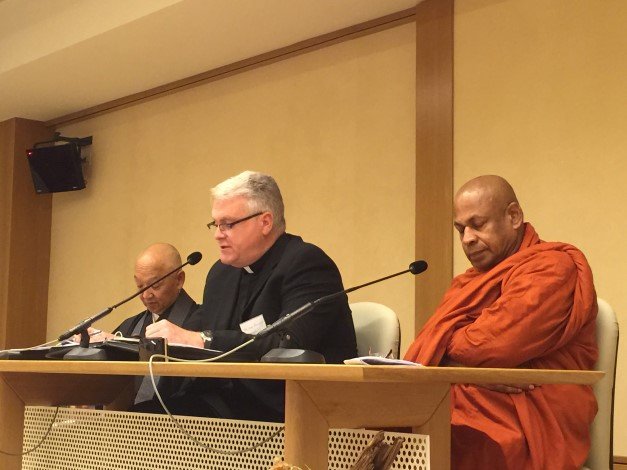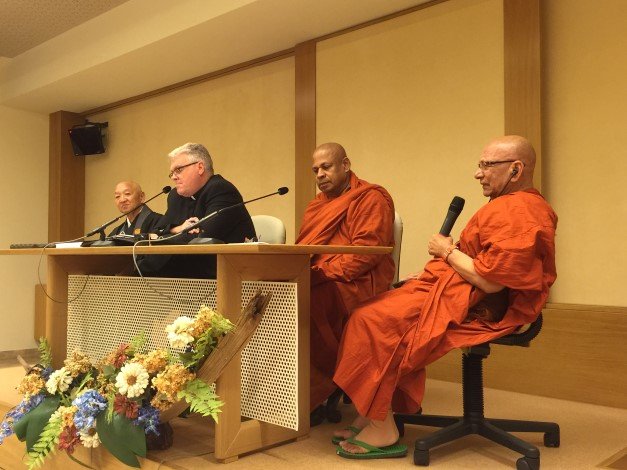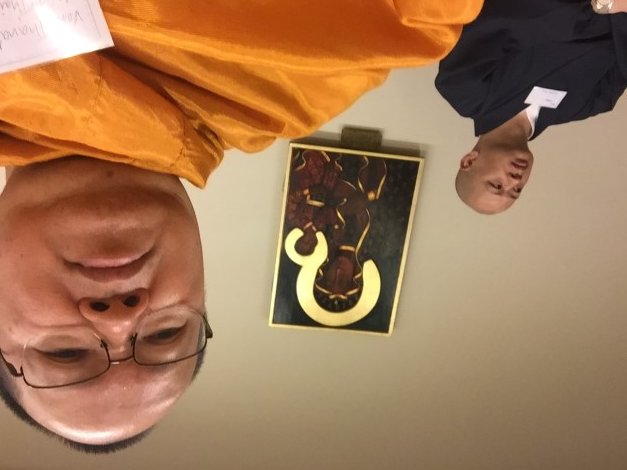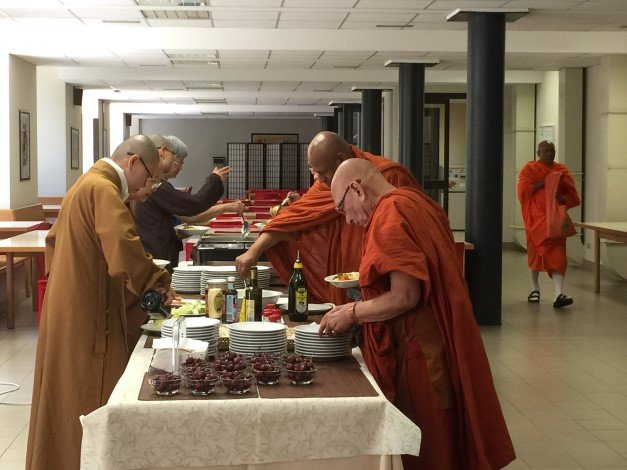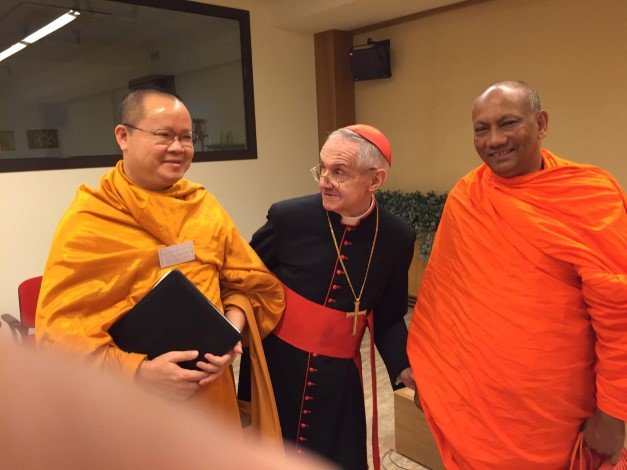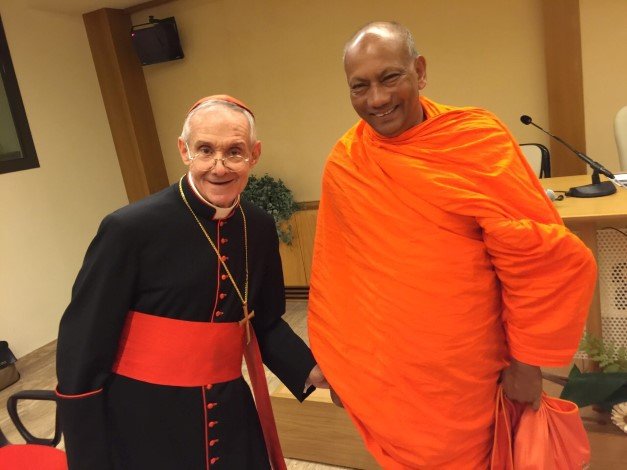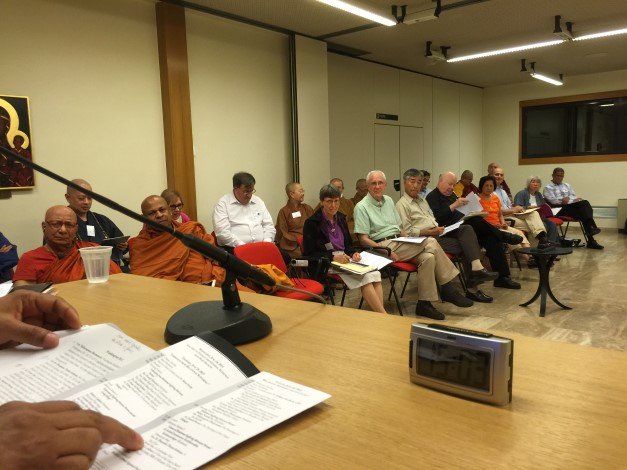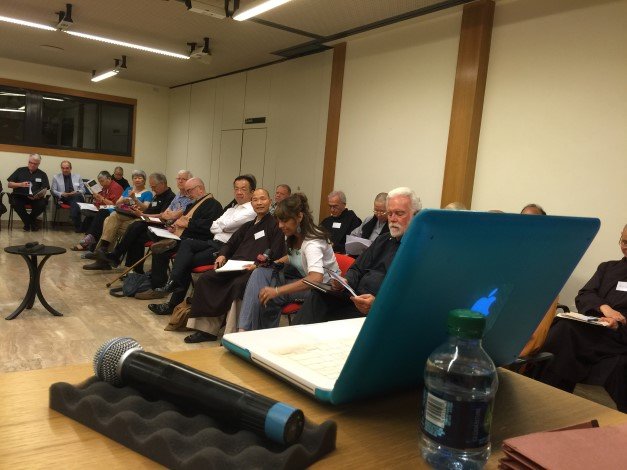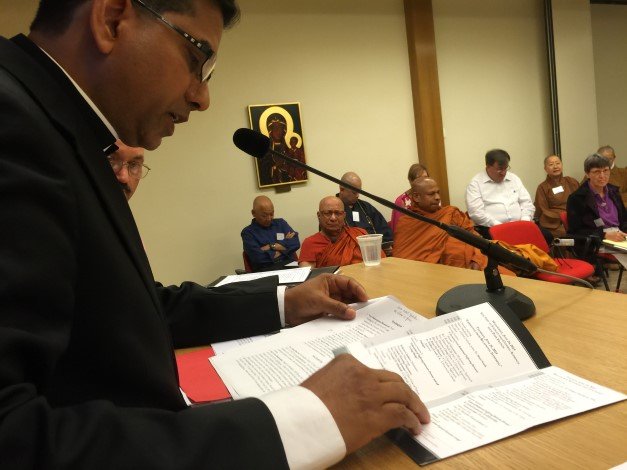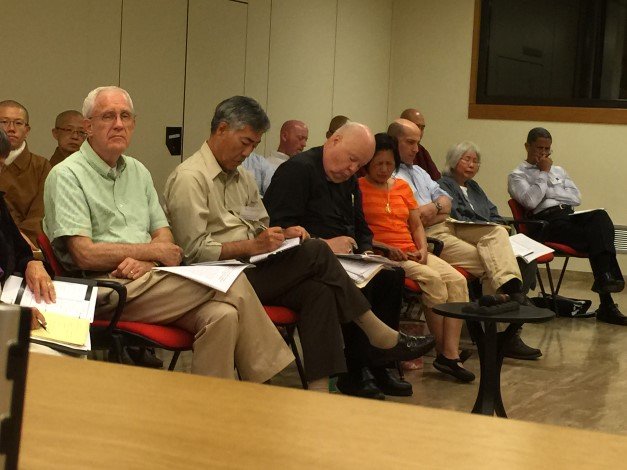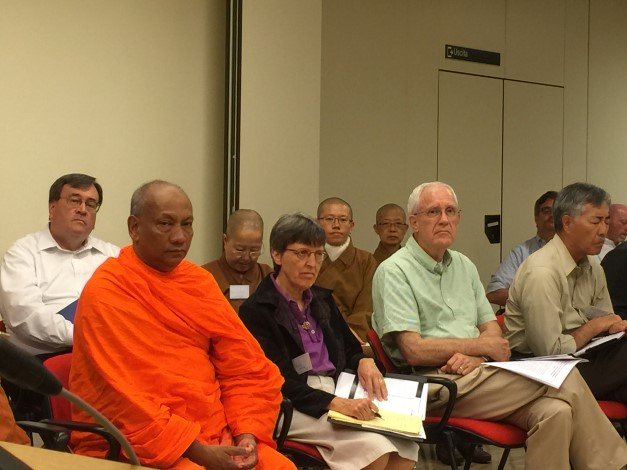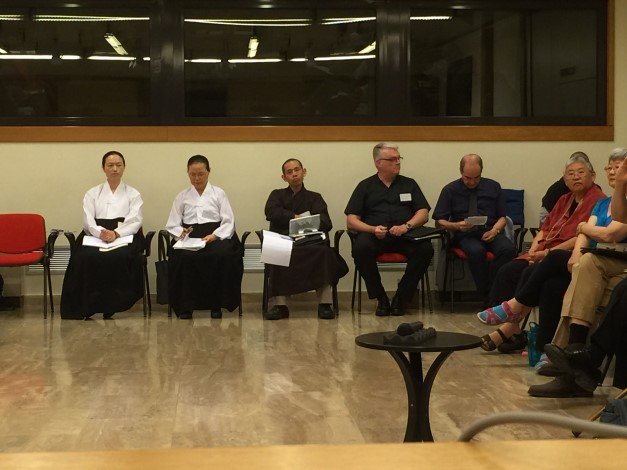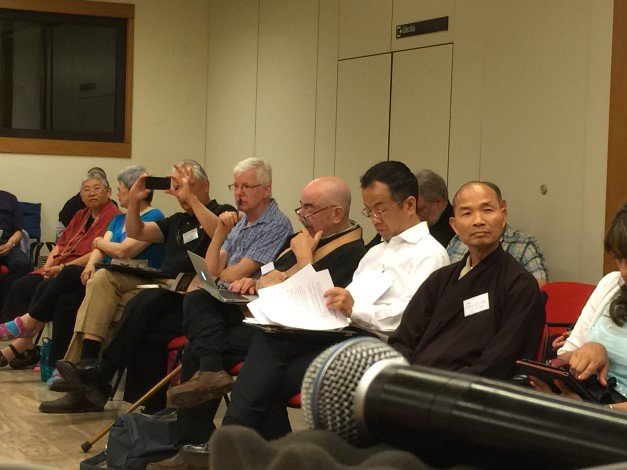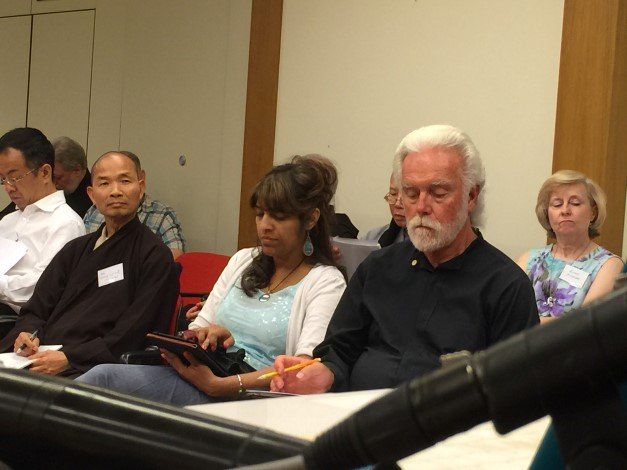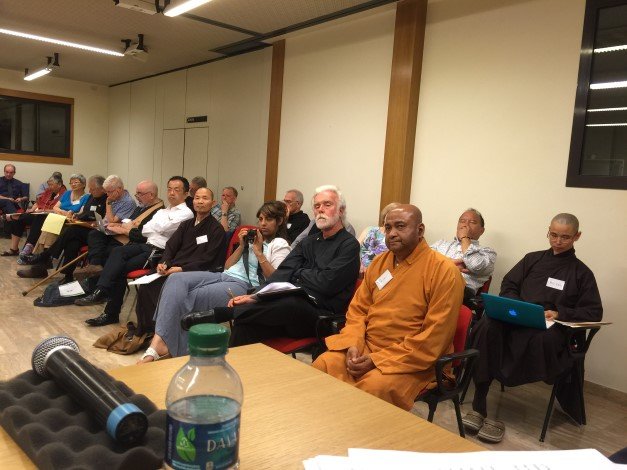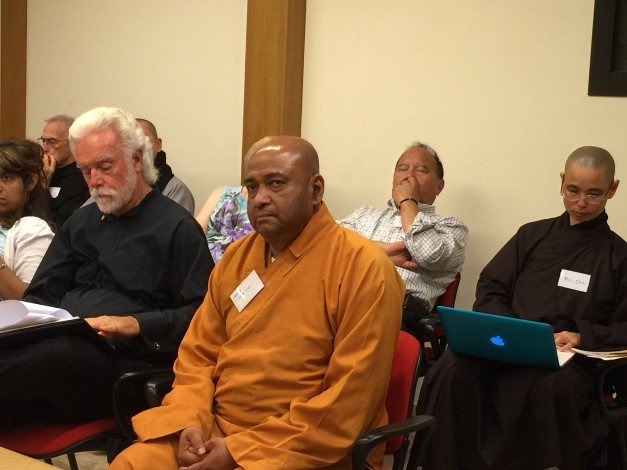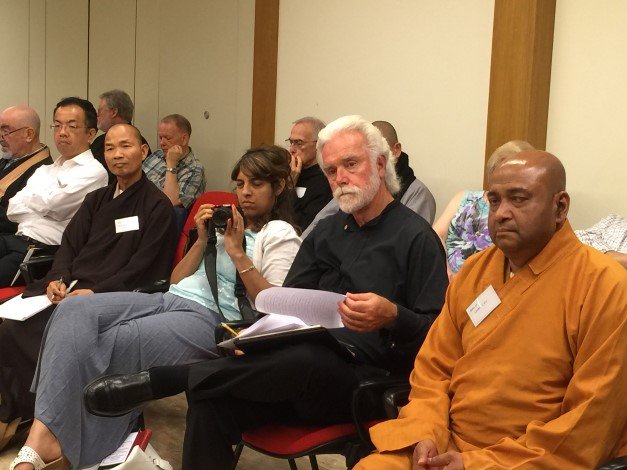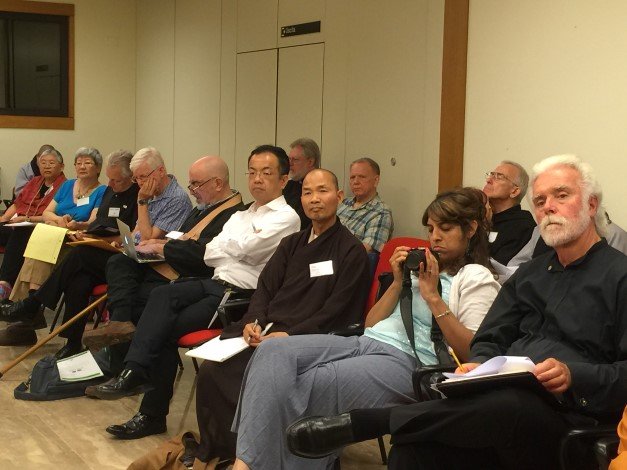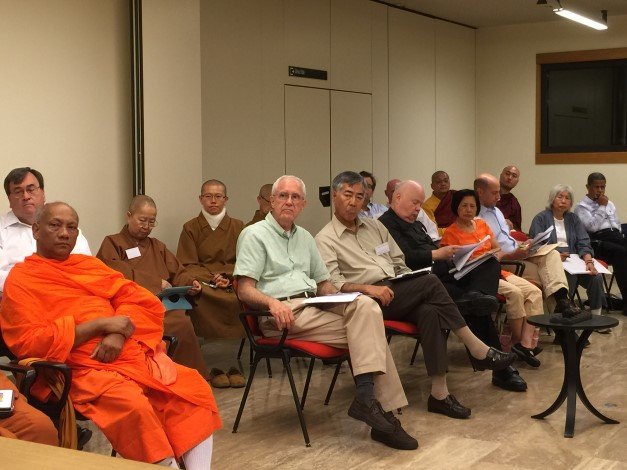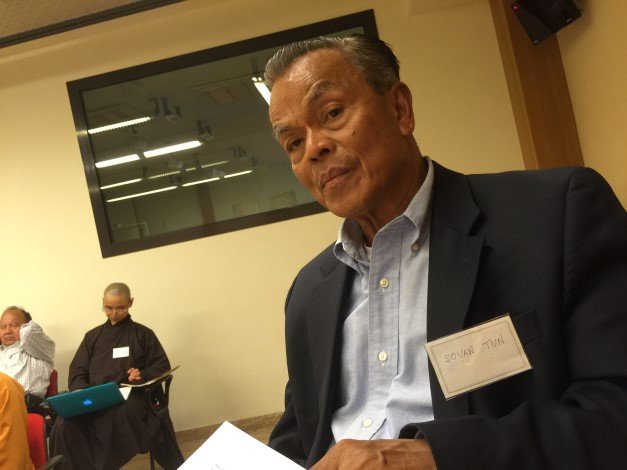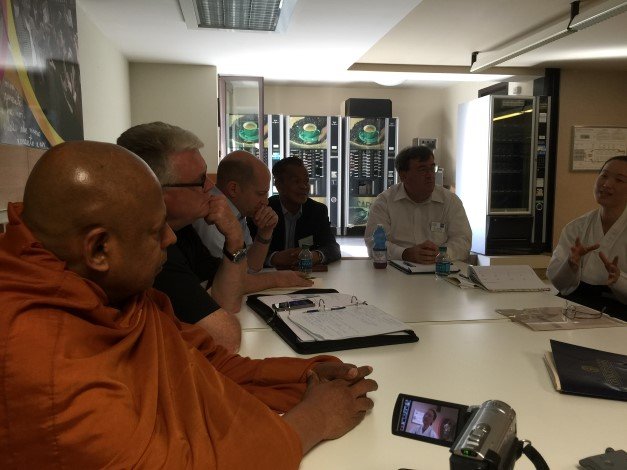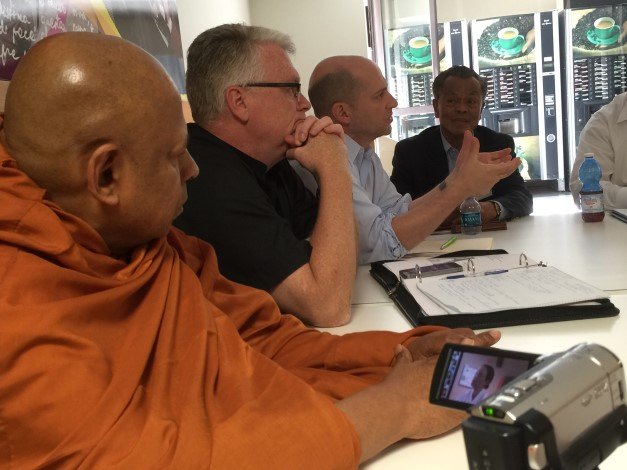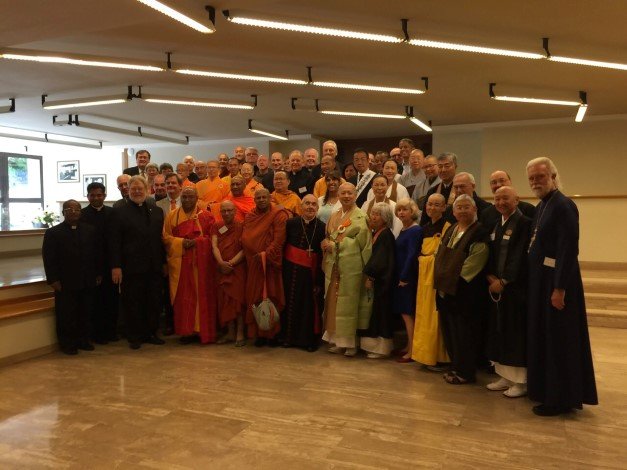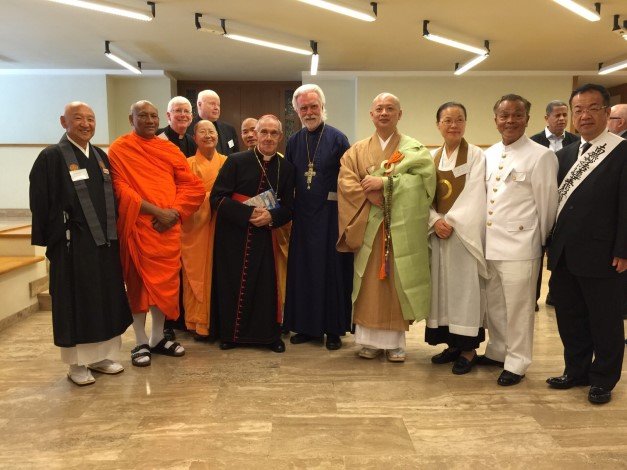The Causes of Relational Suffering between Persons
and the Way to Get Rid of this Suffering according to Theravāda Buddhism
By Ven.Dr.Phramaha Thanat Inthisan,
Wat Thai Washington, D.C.
***********
“‘Bhikkhus, this samsāra [cycle of rebirths] is without discoverable
beginning. A first point is not discerned of beings roaming and
wandering on hindered by ignorance and fettered by craving . . . /
‘For a long time, bhikkhus, you have experienced the death of a
father . . . the death of a brother . . . the death of a sister . . . the
death of a son . . . the death of a daughter . . . the loss of relatives . . .
the loss of wealth . . . loss through illness; as you have experienced
this, weeping and wailing because of being united with the
disagreeable and separated from the agreeable, the stream of tears
that you have shed is more than the water in the four great oceans.’”
—Samyutta Nikāya 15.5, Bhikkhu Bodhi translation.
“Just as a drop of water does not cling to a lotus [leaf], as water
does not cling to a lotus, so a sage does not cling to what is seen or
heard or thought.”
— Sutta-Nipāta 812, K. R. Norman translation.
Introduction
The Buddha of Theravāda Buddhism is concerned primarily about one thing: how suffering comes to be and how it is possible to get rid of it. All other topics in the teaching relate in some way to this concern about suffering. All topics not related in some way to this concern the Buddha sets aside as not worth consideration, for example, speculative philosophical questions.
This essay is divided into four parts. The first part considers the Four Noble Truths, which is the Buddha’s teaching about how suffering in general comes to be and how to get rid of it. The second part concerns Dependent Origination, a detailed explanation of the second and third of the Noble Truths regarding the origin of suffering and the way to get rid of it. In the third part relational suffering as such is discussed. Its origin is viewed in two aspects: in terms of the feeling of displeasure and in terms of clinging to someone who is dear. The fourth part, then, presents the Buddha’s simple teaching, the teaching “in brief,” according to which suffering, including relational suffering between persons, arises insofar as something of the self is added to the simple experiences of the senses. If we take our experiences just as they are and do not add anything of a self to them, we do not experience suffering in any of its forms.
Tuesday, June 23: Day One of Dialogue, “Relational Suffering and its Causes”
a. 7:00: Meditation
b. 7:30: Mass
c. 8:00: Breakfast
d. 9:00: Welcome and Greetings
e. 9:30: Morning Session: Relational Suffering Between Persons
i. The Teaching of the Buddha
ii. The Teaching of the Christ
iii. Dialogue
f. 11:30: Lunch
g. 3:00: Afternoon I: Causes of Relational Suffering Between Persons
i. The Theravada Tradition
ii. The Tradition of the Church Fathers
iii. Dialogue
h. 5:00: Afternoon II: Buddhist-Catholic Regional Discussion Sessions
i. 7:00: Dinner
